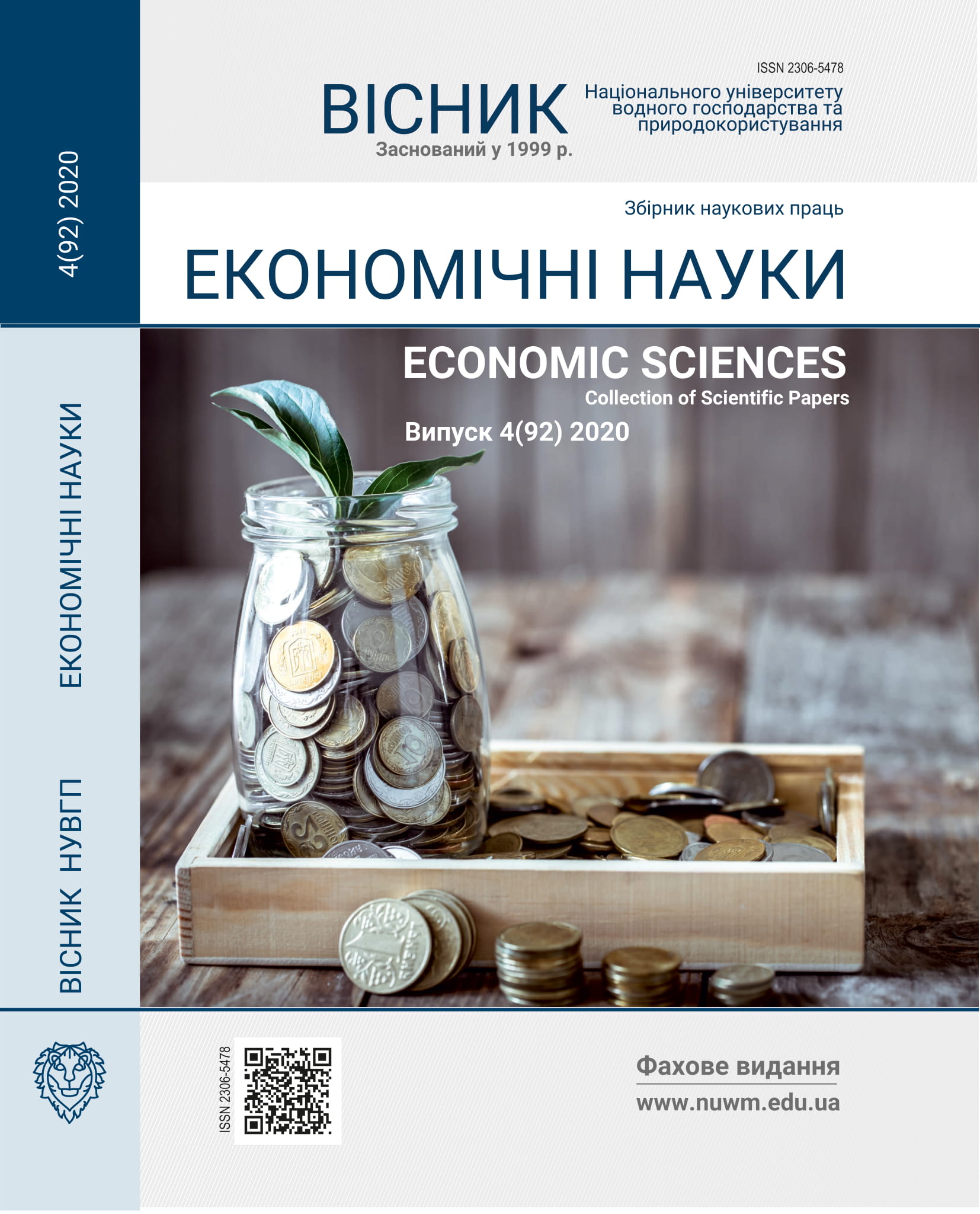DEVELOPMENT OF YOUTH POLICY IN RURAL COMMUNITIES
DOI:
https://doi.org/10.31713/ve4202011Keywords:
youth, youth policy, rural communities, united territorial communities (UTC), youth development programs.Abstract
Today, more than 11.2 million young people live in Ukraine, which is 27% of the country’s population. However, in search of work and a better life, a large number of young and qualified professionals often leave communities. That is why it is important that local communities, at the stage of unification, identify a system of incentives that would help stop the migration of young people from small settlements. Decentralization of power is already significantly changing our country, the transfer of new powers and financial resources to the field has increased the capacity of communities and they are becoming stronger and more successful. However, such development is not characterized by the stability of processes. As a result, some of the united territorial communities barely make ends meet, while others receive large incomes. And many communities have never decided to volunteer.According to the results of the analysis of the availability of suchdocuments on the websites of RTC of Rivne region, most territorialcommunities do not have approved development strategies, socio-economic development programs and youth development programs. Of the total number of OTGs in Rivne region, only 20% have development strategies and only 18% of strategies have strategic and operational goals related to youth policy.The implementation of an effective youth policy in the context ofdecentralization is possible only if the efforts of the executive authorities,local governments and youth representation are combined. According to the results of the analysis, there are only 4 youth centers (Bugaivska RTC, Krychylska RTC, Malynska RTC, Shpanivska RTC) and 12 registered public organizations in the rural communities of Rivne region. These data indicate a low level of development of youth infrastructure, which negatively affects the creation of a favorable environment in communities for informal development of young people, including leisure, communication, communication platforms, and youth exchange programs. To better understand the development of youth policy, we conducted a survey of young people aged 18 to 21 living in rural communities. The sample is formed by a random method of selection, so that the selection of respondents from the general population was carried out at random. This made it possible to adhere to the principle of equal opportunity to be included in the sample for all units of the general population. The sample size is 92 people.The development of an effective youth policy in the context of decentralization is possible only if the efforts of the executive, localgovernments and youth are combined and coordinated. However, according to the interviewed young people, the local authorities do not always take their opinion into account when making decisions related to the development of RTC. Of the total number of respondents, only 8% say that young people participate in the socio-economic development of the community.References
Borodin Ye. I., Khozhylo I. I., Tarasenko T. M. Upravlinnia sotsialno-humanitarnoiu sferoiu v protsesi dobrovilnoho obiednannia terytorialnykh hromad: teoretychnyi ta praktychnyi aspekty. Aspekty publichnoho upravlinnia. 2015. № 5–6. S. 65–75.
Mishyna N. V. Pro perspektyvy zaluchennia molodi do uchasti u mistsevomu samovriaduvanni v Ukraini. Nauk. pr. Nats. un-tu «Odeska yurydychna akademiia» : zb. nauk. pr. NU OIuA. 2013. T. 13. S. 304–309.
Motrechko V. Vplyv orhaniv mistsevoho samovriaduvannia na rozvytok molodizhnoi polityky v Ukraini. Aktualni problemy derzhavnoho upravlinnia. 2015. Vyp. 2. S. 151–155.
Koval H. V. Rozvytok derzhavnoi molodizhnoi polityky: teoriia, metodolohiia, mekhanizmy realizatsii. Mykolaiv : Vyd-vo ChDU im. Petra Mohyly, 2013. S. 119.
Brovko N. I. Formuvannia ta realizatsiia molodizhnoi polityky v silskii mistsevosti v umovakh detsentralizatsii. Porivnialnoanalitychne pravo. 2017. № 6. S. 60–62.
Pro dobrovilne obiednannia terytorialnykh hromad : Zakon Ukrainy vid 05.02.2015 r. № 157-VIII. URL: https://zakon.rada.gov.ua/laws/show/157-19 (data zvernennia: 10.12.2020).
Pro model realizatsii molodizhnoi polityky na rivni miskoi/selyshchnoi/silskoi OTH : rishennia kolehii Ministerstva molodi ta sportu Ukrainy vid 27.12.2017 r. № 7-1/3/17. URL: http://dsmsu.gov.ua/index/ua/material/35078 (data zvernennia: 12.12.2020).
Pro osnovni zasady molodizhnoi polityky. Proiekt zakonu Ukrainy. URL: https://w1.c1.rada.gov.ua/pls/zweb2/webproc4_1?pf3511=69244 (data zvernennia: 12.12.2020).
URL: http://mission.youthplatform.com.ua/wpcontent/uploads/2020/01/www.youth-worker.org_.ua-2019.pdf (data zvernennia: 12.12.2020).

